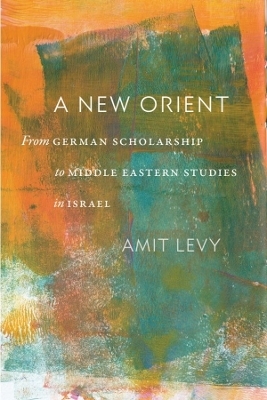
A New Orient
Brandeis University Press (Verlag)
978-1-68458-202-0 (ISBN)
- Noch nicht erschienen (ca. Dezember 2024)
- Versandkostenfrei innerhalb Deutschlands
- Auch auf Rechnung
- Verfügbarkeit in der Filiale vor Ort prüfen
- Artikel merken
This study examines the history of Zionist academic Orientalism—referred to throughout as Oriental studies, the term contemporary English speakers would have used—in light of its German-Jewish background, as a history of knowledge transfer stretching along an axis from Germany to Palestine. The transfer, which took place primarily during the 1920s and 1930s, involved questions about the re-establishment, far from Germany, of a field of knowledge with deep German roots. Like other German-Jewish scholars arriving in Palestine at the time, some of the Orientalist agents of transfer did so out of Zionist conviction as olim (immigrants making aliyah, or literally “ascending” to the homeland), while others joined them later as refugees from Nazi Germany; both groups were integrated into the institutional apparatus of the Hebrew University. Unlike other fields of knowledge or professions, however, the transfer of Orientalist knowledge was unique in that the axis involved an essential change in the nature of its encounter with the Orient: from a textual-scientific encounter at German universities, largely disconnected from contemporary issues to a living, substantive, and unmediated encounter with an essentially Arab region—and the escalating Jewish-Arab conflict in the background. Within the new context, German-Jewish Orientalist expertise was charged with political and cultural significance it had not previously faced, fundamentally influencing the course of the discipline’s development in Palestine and Israel.
Amit Levy is a research fellow in the Department of Israel Studies, University of Haifa. His research focuses on the history of knowledge and migration and their impact on cross-cultural encounters. He has held postdoctoral fellowships at the University of Oxford, the University of Wisconsin–Madison, and the Open University of Israel
Introduction
Critique, counter-critique, transfer and influence: An overview
German Orientalism, German-Jewish Orientalism, and their discontents
Knowledge transfer and its impact: from Germany to Palestine
Scholarly archives and knowledge networks
Chapter 1. The Science of the Orient: The Beginnings of Oriental Studies at the Hebrew
University
German inheritance: the development of modern German Orientalism and the question of
applied science
Judaism with the Orient for an Orient without Judaism: preparations for the foundation
of the School of Oriental Studies
The Goldziher proposal
Jewish Studies, Oriental Studies, and the Humanities
Initial plans: Mayer, Margolis
The Horovitz Plan and the establishment of the institute
Berlin-Frankfurt-Jerusalem: the impact of ideas and material conditions
The research projects
Teachers and scholars
Outside the institute: Avraham Shalom Yahuda, Israel Ben-Ze’ev
A German image: On the character of the German legacy
Chapter 2. “With its back to the Orient”? The School of Oriental Studies and the
Question of the Arab Scholars
Scholarly love: Relations between the School of Oriental Studies and the Arab and Muslim
intellectual world
The textual circle
The ethnographic-archaeological circle
The student circle
Invisible and exposed: Intellectual amity and the failure to institutionalize
The Question of the Arab lecturer
The border line: Dreams of affinity, Zionist reality, and German standards
Chapter 3. The Orient Renewed: The Birth of Israeli Oriental Studies and the Diplomatic
Mission
The Goitein era: Chronological and thematic expansion beyond the war
The “Abandoned Property” books
The modern Middle East
The study of Jews from Islamic lands
The Israeli Oriental Society and ‘The New Orient’
The Heyd era: The rise of a second generation and the geographical expansion of Oriental
Studies
3
The conceptual infrastructure
The Institute of Asian and African Studies
Generation gap? The Florence Conference (1958) and generations of Israeli Oriental
Studies
“Truly, Jerusalem has one benefit: Lying within the Orient”: Epilogue
Bibliography
| Erscheint lt. Verlag | 23.12.2024 |
|---|---|
| Sprache | englisch |
| Maße | 152 x 229 mm |
| Gewicht | 513 g |
| Themenwelt | Geisteswissenschaften ► Geschichte ► Regional- / Ländergeschichte |
| Geschichte ► Teilgebiete der Geschichte ► Kulturgeschichte | |
| ISBN-10 | 1-68458-202-4 / 1684582024 |
| ISBN-13 | 978-1-68458-202-0 / 9781684582020 |
| Zustand | Neuware |
| Haben Sie eine Frage zum Produkt? |
aus dem Bereich


